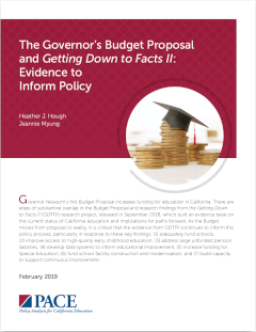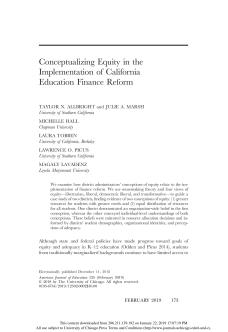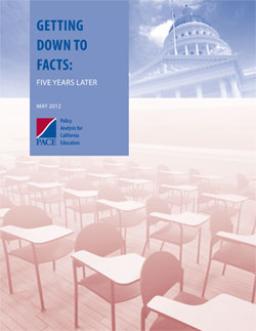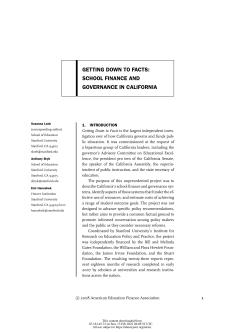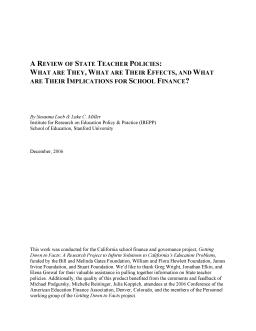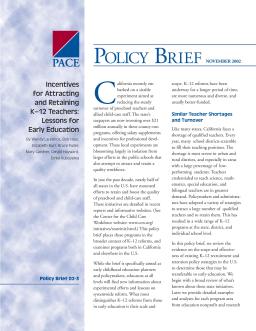Summary
Governor Newsom’s first Budget Proposal increases funding for education in California. There are areas of substantive overlap in the Budget Proposal and research findings from the Getting Down to Facts II (GDTFII) research project, released in September 2018, which built an evidence base on the current status of California education and implications for paths forward. As the Budget moves from proposal to reality, it is critical that the evidence from GDTFII continues to inform the policy process.
Summary
Summary
This report commemorates the fifth anniversary of the Getting Down to Facts project, which sought to provide a thorough and reliable analysis of the critical challenges facing California’s education system as the necessary basis for an informed discussion of policy changes aimed at improving the performance of California schools and students. The report focuses on the four key issues that received emphasis in the Getting Down to Facts studies: governance, finance, personnel, and data systems.
